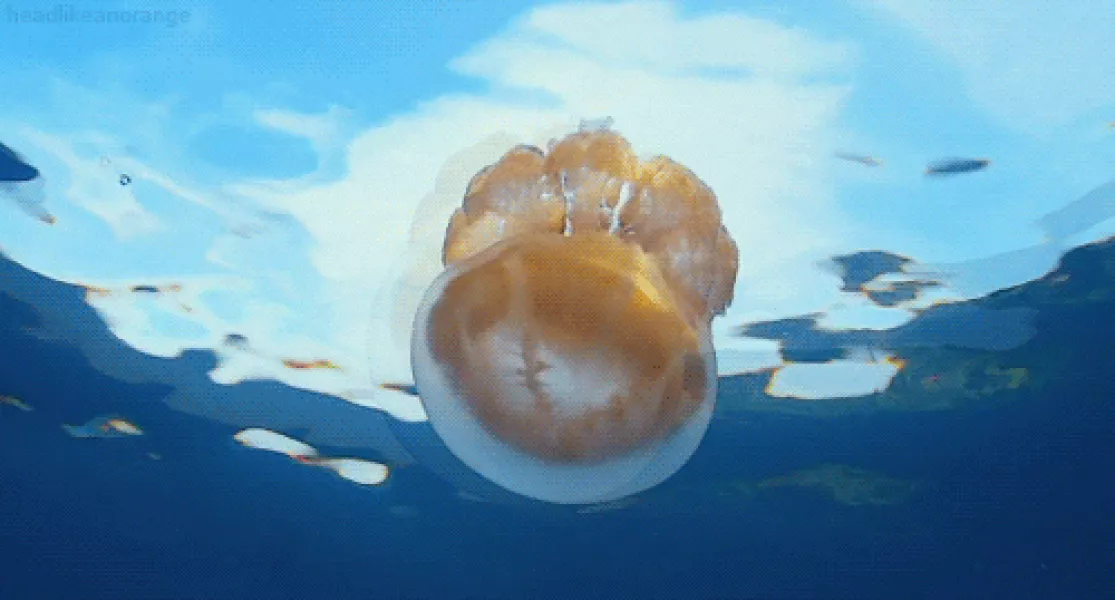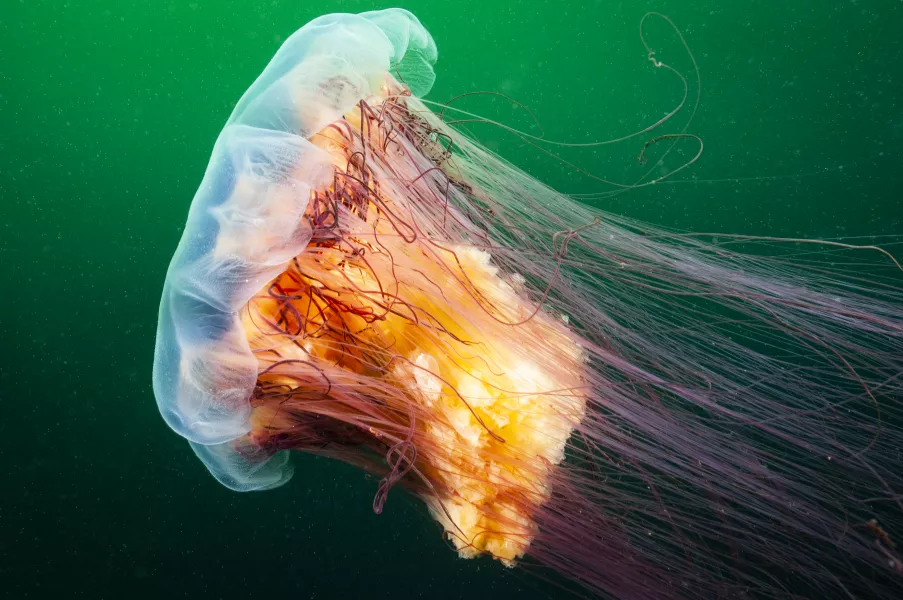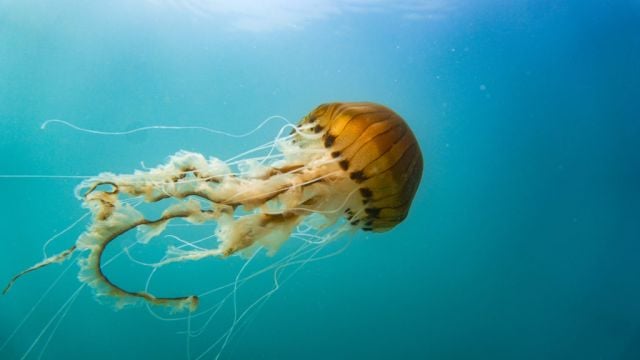Closer to water-filled plastic bags than anything else, jellyfish rank among the most mysterious creatures to inhabit land or sea. Occasionally deadly, often strangely beautiful, and biologically bizarre beyond belief, these ethereal invertebrates don’t get the love they deserve thanks to their gloopy, gelatinous façade.
To mark World Jellyfish Day (November 3), here are a few things you never knew you needed to know about the humble jellyfish…
1. They have no brains
In a zombie apocalypse, a jellyfish is a great thing to be. Not only do they have no brains, they have no lungs and no heart, absorbing oxygen directly through their wafer-thin skin.

2. They can sting you from beyond the grave
Speaking of zombies, there are some species of jellyfish that can technically kill you despite being dead themselves. Jellyfish tentacles contain tiny stings called nematocysts, which can detach and inject venom into foreign objects without the live input of their host.
3. They may be the oldest multicellular creatures on Earth
Listless drifters living out their days in perpetual motion, jellyfish have been ambling around our oceans for more time than the human mind can likely comprehend. In 2007, new fossil records put back the estimated age of jellyfish from 300 million to 505 million years – older than the dinosaurs, the Coelacanth, and even the famously primeval horseshoe crab.

4. Jellyfish have conquered space
They didn’t know much about it, admittedly, but nearly 2,500 jellyfish polyps journeyed into the cosmos aboard Space Shuttle Columbia in 1991, case studies for scientists researching microgravity. The jellies reproduced in orbit, creating 60,000 more jellyfish all born outside our atmosphere. Unfortunately, the space-bred jellies struggled to adapt to high gravity on returning to Earth.
5. Some jellyfish have extremely long tentacles
The Lion’s Mane jellyfish is also known as ‘the giant jellyfish’, and it earns the title with tentacles that could scale most three-storey buildings. In 1865, American biologist Jean Agassiz claimed to have measured one specimen’s tentacles at 36.6 metres long – comfortably longer than large-animal-in-chief, the blue whale.

6. One species may genuinely be immortal
Turritopsis dohrnii, aka ‘the immortal jellyfish’, can theoretically live forever. When threatened or diseased the jellyfish can choose to biologically recede into its pre-sexual polyp form, and live life all over again. Polyp reversion is unfortunately out of bounds to humans, but the jellyfish remains a common sight in the labs of pharmaceutical biologists.
7. They’re absolutely everywhere
From the ice sheets of the Arctic to the corals of the Caribbean, from the sun-kissed surface to the darkest corners of the deep, jellyfish are a ubiquitous presence in all the world’s oceans. Their low-maintenance lifestyle can easily adapt to any ecosystem – without being rude, they just sit there.

8. Jellyfish can clone themselves
If a jellyfish is cut in two, the pieces can regenerate into two distinct organisms. Like if a lizard could not only regrow its tail, but grow an entire new lizard from the tail it had lost.
9. No, peeing on a jellyfish sting doesn’t help
Thanks mostly to that Friends episode, there is now a widespread belief that jellyfish stings can be solved or at least soothed by a quick dash of human urine. However, this is wholly fictitious, and the solutes in urine could actually cause the stings to smart more painfully.







